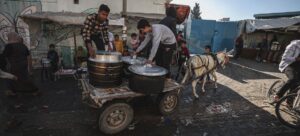 For most five-year-olds, the mere mention of “pi” will likely evoke questions as to whether it comes with ice cream or tomato sauce.
For most five-year-olds, the mere mention of “pi” will likely evoke questions as to whether it comes with ice cream or tomato sauce.
But Lejla Sinanovic is no ordinary five-year-old.
She hasn’t even started primary school, yet can recite pi on cue to more than 100 decimal places. Lejla allegedly mastered the art in less than 10 weeks.
It’s one of several sequences of numbers Lejla rattles off for news.com.au as proof of her “extreme photographic memory” at the Shichida Early Learning Centre in Sydney on Monday.
She can also recall the names of streets she passed on car trips weeks earlier and details of hotel rooms she stayed in three years ago, when she was just two years old, according to her mother Zineta Sinanovic. She says Lejla could spell her “first and last names” out loud at just 15 months old.
“We started from baby books and sometimes we got to a point where we thought she’d actually learned to read but she had actually just memorized what we’d read to her and could read it back,” Ms. Sinanovic says.
“She has an amazing little brain (and) a ridiculous memory that she astounds us with in different ways.”
Lejla, who will start kindergarten next year, “remembers pretty far back”, according to her mother. At just five, her yardstick isn’t long, but she recalls certain things “you wouldn’t think a kid at that age would remember” according to her mum.
But it hasn’t come entirely naturally. Lejla has been attending Shichida classes — a Japanese “brain training program” — for 50 minutes once a week since she was six months old. Back then, her teachers would wave puppets in front of her to “strengthen her eye muscles”. It’s a memory technique still used on babies, who make up some of the organisation’s 440 students Australia-wide, says manager and teacher Hanako Ward.
“It keeps their minds active and stimulated,” Ms. Ward says.
As the children grow and their minds expand, more complex techniques are used to develop their memories. Some of the activities include flash cards, alphabet charts, speed reading and listening, songs, games and peg words. According to Ms. Ward, Lejla now has an “extreme photographic memory”.
According to Ms. Ward, Shichida is growing in popularity in Australia. She says the organization has gained an average of 100 new students each year since opening in 2013. It has three centers in Melbourne and one in Sydney with a fourth to open in Parramatta in the middle of next year.

















